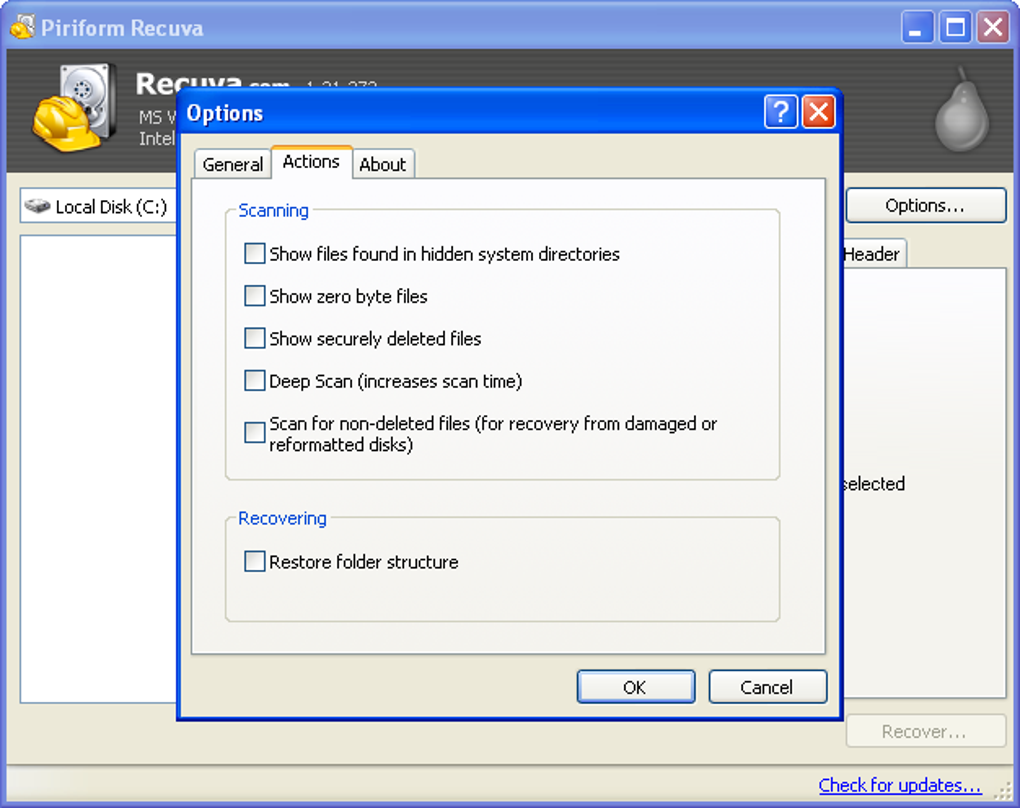

If such features are important to you, we’d strongly suggest you consider options like: Recuva also can’t be used to recover data from RAID storage. Others include startup-disc recovery, cloning, and decent sorting features to parse recovered data. The biggest miss is that Recuva Pro can’t recover lost partitions. But several advanced features commonly available with other data recovery platforms aren’t offered by Recuva. However, sparse features and worse support means those with broader needs or little technical know-how may want to look elsewhere. Our conclusion: While only available for Windows users, Recuva gets the job done. Intrigued by what we were hearing, we at decided our own test drive of this value-driven data recovery solution to see just how well it measured up compared to our other best data recovery software. It’s no wonder Recuva has been generating a bit of virtual watercooler talk. Not only is its flagship application, Piriform Recuva Pro, available for just $20, there’s actually a free version with no limits on how much data you can recover.

Recuva enters the data recovery fray as one of the best value options on the market. If you opt for software, in most cases you’re looking at between $50 to $100 for reliable software like Stellar Phoenix or EaseUS. If you go to a professional, it could cost hundreds or even thousands of dollars. Recovering lost data can be an expensive proposition.

Time Machine vs Arq vs Duplicati vs Cloudberry Backup.


 0 kommentar(er)
0 kommentar(er)
